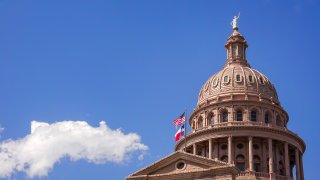
A federal judge ruled on Saturday that part of a Texas law that enacted new voting restrictions violated the U.S. Constitution by being too vague and restricting free speech.
The ruling, made by U.S. District Judge Xavier Rodriguez, immediately halted the state’s ability to investigate alleged cases of vote harvesting, such as the investigation into the League of United Latin American Citizens by Attorney General Ken Paxton.
Before today’s ruling, a person who knowingly provided or offered vote harvesting services in exchange for compensation was committing a third-degree felony. This meant that organizers of voter outreach organizations and even volunteers could spend up to ten years in prison and fined up to $10,000 for giving or offering these services.
Paxton on Monday vowed to appeal the ruling.
Get top local stories in DFW delivered to you every morning. >Sign up for NBC DFW's News Headlines newsletter.
“A ruling—weeks prior to an election— preventing my office from investigating potential election violations is deeply troubling and risks undermining public trust in our political process,” he said.
According to Republican lawmakers, the provision was put in place to prevent voter fraud and secure election integrity. However, in the ruling, the judge noted that there was widespread confusion about how to implement the canvassing restriction from local election administrators. This confusion also left voter outreach organizations uncertain about whether they could provide volunteers with food or bus fare because it could look like compensation.
Many organizations – including La Union del Pueblo Entero, LULAC, and the Mexican American Legal Defense and Educational Fund – have filed lawsuits against many other provisions of the law, including voter assistance and mail-in ballot restrictions. The challenges to these provisions have not been ruled on yet. The original complaints were filed in August and September 2021.
Texas News
News from around the state of Texas.
Before the law, organizations like OCA-Greater Houston, an advocacy organization for people of Asian and Pacific Island descent, hosted in-person election events and allowed attendees to bring their mail-in ballots to receive help, such as language assistance.
Nina Perales, vice president of litigation at MALDEF, wrote, "Today’s ruling means that voter outreach organizers and other advocates in Texas can speak to mail ballot voters about issues on the ballot and urge voters to support improvements to their communities.”
ACLU of Texas celebrated the ruling on X saying, “This is a win for voting rights in the state, and for the organizations that help keep elections accessible.”



